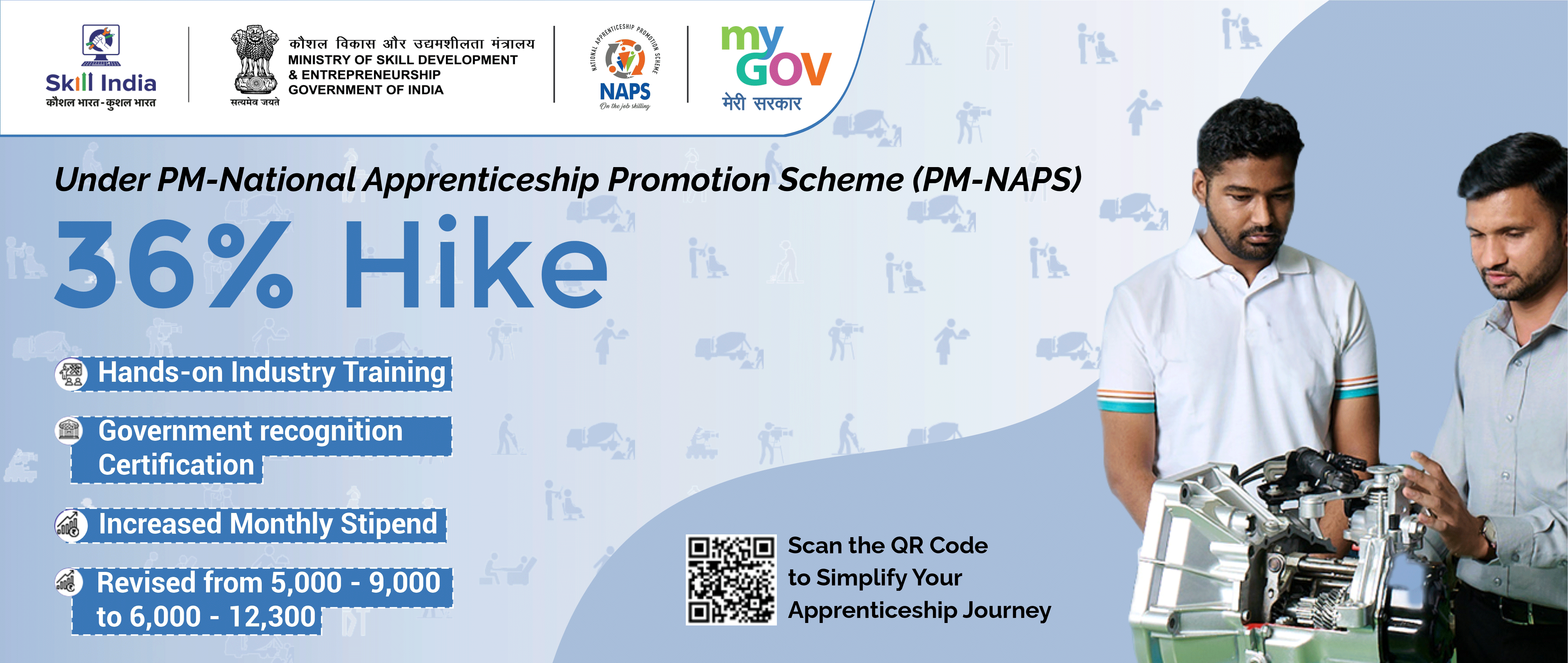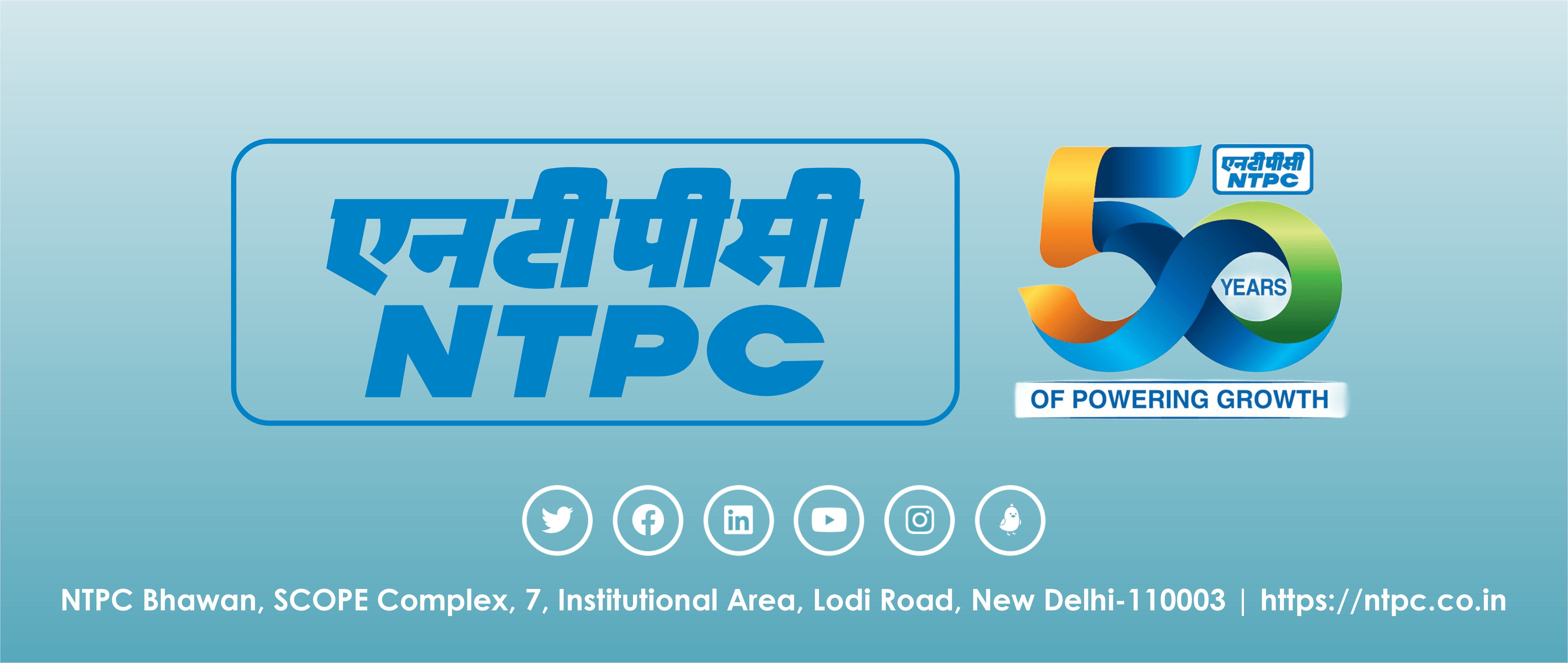TO RECIEVE EXCLUSIVE POSTS AND NEWS
 Perseverance pays. And so this wonder story of the steady transformation of a government organisation must be told. Not only because it is in sync with the Digital India vision, but also because it intends to bring about a positive change in the lives of the most special Divyangs (Persons with Disabilities) through an Information Technology-enabled route.
Recently it came into the limelight for its re-invented and transformed operations by means of web-solutions which has not only made the operations paperless but has turned out to be the saviour of time, manpower and man-hour as a virtual office.
Digital initiatives taken by the National Trust (www.thenationaltrust.gov.in), the country's premier institution for the welfare of persons with autism, cerebral palsy, mental retardation and multiple disabilities, have brought this little-known organisation into focus.
Winds of digital transformation and IT-driven ease for Divyangs started blowing at the National Trust when well known social worker Poonam Natarajan, a pioneer of services for persons with intellectual and developmental disabilities, became the organisation's Chairperson in January 2006.
In August 2007, Natarajan was joined by 1987 batch Bihar cadre IAS officer Atul Prasad as Joint Secretary and Chief Executive Officer (JS&CEO) of the National Trust. The Natarajan-Prasad duo ushered in what is today known as the organisation's "golden period". Prasad returned to Bihar in August 2012 after completing five years of central deputation at National Trust. Natarajan, however, continued as Chairperson until October 2014, serving the Trust for more than eight years. With Natarajan in the chair, the National Trust bagged the Times of India Social Impact Award in 2012.
The organisation's present JS&CEO C.K. Khaitan, a 1987 batch IAS officer, who assumed office in January 2015, has carried forward the legacy of good work left behind by the Natarajan-Prasad duo and given it a further digital push. Digital initiatives undertaken by the National Trust over the years have surely given a tough time to most other central government organisations and departments that are striving to catch up.
The Trust has been providing 360-degree solutions in the field of governance and administration, and all by means of digital platforms well covered by its website. The organisation's portal provides complete solutions to all stakeholders so much so that they barely need to visit the headquarters for any work, be it the registration of NGOs or procuring funds to run the schemes.
Through its well-incorporated digital platform, the organisation runs 10 schemes, seven of which were started during the Trust's "golden period" while the other three began earlier. These include: 'Disha' (Early Interventio
Perseverance pays. And so this wonder story of the steady transformation of a government organisation must be told. Not only because it is in sync with the Digital India vision, but also because it intends to bring about a positive change in the lives of the most special Divyangs (Persons with Disabilities) through an Information Technology-enabled route.
Recently it came into the limelight for its re-invented and transformed operations by means of web-solutions which has not only made the operations paperless but has turned out to be the saviour of time, manpower and man-hour as a virtual office.
Digital initiatives taken by the National Trust (www.thenationaltrust.gov.in), the country's premier institution for the welfare of persons with autism, cerebral palsy, mental retardation and multiple disabilities, have brought this little-known organisation into focus.
Winds of digital transformation and IT-driven ease for Divyangs started blowing at the National Trust when well known social worker Poonam Natarajan, a pioneer of services for persons with intellectual and developmental disabilities, became the organisation's Chairperson in January 2006.
In August 2007, Natarajan was joined by 1987 batch Bihar cadre IAS officer Atul Prasad as Joint Secretary and Chief Executive Officer (JS&CEO) of the National Trust. The Natarajan-Prasad duo ushered in what is today known as the organisation's "golden period". Prasad returned to Bihar in August 2012 after completing five years of central deputation at National Trust. Natarajan, however, continued as Chairperson until October 2014, serving the Trust for more than eight years. With Natarajan in the chair, the National Trust bagged the Times of India Social Impact Award in 2012.
The organisation's present JS&CEO C.K. Khaitan, a 1987 batch IAS officer, who assumed office in January 2015, has carried forward the legacy of good work left behind by the Natarajan-Prasad duo and given it a further digital push. Digital initiatives undertaken by the National Trust over the years have surely given a tough time to most other central government organisations and departments that are striving to catch up.
The Trust has been providing 360-degree solutions in the field of governance and administration, and all by means of digital platforms well covered by its website. The organisation's portal provides complete solutions to all stakeholders so much so that they barely need to visit the headquarters for any work, be it the registration of NGOs or procuring funds to run the schemes.
Through its well-incorporated digital platform, the organisation runs 10 schemes, seven of which were started during the Trust's "golden period" while the other three began earlier. These include: 'Disha' (Early Interventio
Readers' Choice
RK Sharma takes charge as DGP 03 Jul 2025
Bihar’s Revenue Secretary may resign to contest Assembly election 03 Jul 2025
R K Sharma is the new Rajasthan DGP 30 Jun 2025
Centre swings surprise, Gujarat DGP gets extension in service 30 Jun 2025
Tenure of Chhattisgarh Chief Secretary extended 30 Jun 2025
National Trust: A Digital Wonder for Divyangs
By IndianMandarins - 2016-09-29 11:19:10
 Perseverance pays. And so this wonder story of the steady transformation of a government organisation must be told. Not only because it is in sync with the Digital India vision, but also because it intends to bring about a positive change in the lives of the most special Divyangs (Persons with Disabilities) through an Information Technology-enabled route.
Recently it came into the limelight for its re-invented and transformed operations by means of web-solutions which has not only made the operations paperless but has turned out to be the saviour of time, manpower and man-hour as a virtual office.
Digital initiatives taken by the National Trust (www.thenationaltrust.gov.in), the country's premier institution for the welfare of persons with autism, cerebral palsy, mental retardation and multiple disabilities, have brought this little-known organisation into focus.
Winds of digital transformation and IT-driven ease for Divyangs started blowing at the National Trust when well known social worker Poonam Natarajan, a pioneer of services for persons with intellectual and developmental disabilities, became the organisation's Chairperson in January 2006.
In August 2007, Natarajan was joined by 1987 batch Bihar cadre IAS officer Atul Prasad as Joint Secretary and Chief Executive Officer (JS&CEO) of the National Trust. The Natarajan-Prasad duo ushered in what is today known as the organisation's "golden period". Prasad returned to Bihar in August 2012 after completing five years of central deputation at National Trust. Natarajan, however, continued as Chairperson until October 2014, serving the Trust for more than eight years. With Natarajan in the chair, the National Trust bagged the Times of India Social Impact Award in 2012.
The organisation's present JS&CEO C.K. Khaitan, a 1987 batch IAS officer, who assumed office in January 2015, has carried forward the legacy of good work left behind by the Natarajan-Prasad duo and given it a further digital push. Digital initiatives undertaken by the National Trust over the years have surely given a tough time to most other central government organisations and departments that are striving to catch up.
The Trust has been providing 360-degree solutions in the field of governance and administration, and all by means of digital platforms well covered by its website. The organisation's portal provides complete solutions to all stakeholders so much so that they barely need to visit the headquarters for any work, be it the registration of NGOs or procuring funds to run the schemes.
Through its well-incorporated digital platform, the organisation runs 10 schemes, seven of which were started during the Trust's "golden period" while the other three began earlier. These include: 'Disha' (Early Interventio
Perseverance pays. And so this wonder story of the steady transformation of a government organisation must be told. Not only because it is in sync with the Digital India vision, but also because it intends to bring about a positive change in the lives of the most special Divyangs (Persons with Disabilities) through an Information Technology-enabled route.
Recently it came into the limelight for its re-invented and transformed operations by means of web-solutions which has not only made the operations paperless but has turned out to be the saviour of time, manpower and man-hour as a virtual office.
Digital initiatives taken by the National Trust (www.thenationaltrust.gov.in), the country's premier institution for the welfare of persons with autism, cerebral palsy, mental retardation and multiple disabilities, have brought this little-known organisation into focus.
Winds of digital transformation and IT-driven ease for Divyangs started blowing at the National Trust when well known social worker Poonam Natarajan, a pioneer of services for persons with intellectual and developmental disabilities, became the organisation's Chairperson in January 2006.
In August 2007, Natarajan was joined by 1987 batch Bihar cadre IAS officer Atul Prasad as Joint Secretary and Chief Executive Officer (JS&CEO) of the National Trust. The Natarajan-Prasad duo ushered in what is today known as the organisation's "golden period". Prasad returned to Bihar in August 2012 after completing five years of central deputation at National Trust. Natarajan, however, continued as Chairperson until October 2014, serving the Trust for more than eight years. With Natarajan in the chair, the National Trust bagged the Times of India Social Impact Award in 2012.
The organisation's present JS&CEO C.K. Khaitan, a 1987 batch IAS officer, who assumed office in January 2015, has carried forward the legacy of good work left behind by the Natarajan-Prasad duo and given it a further digital push. Digital initiatives undertaken by the National Trust over the years have surely given a tough time to most other central government organisations and departments that are striving to catch up.
The Trust has been providing 360-degree solutions in the field of governance and administration, and all by means of digital platforms well covered by its website. The organisation's portal provides complete solutions to all stakeholders so much so that they barely need to visit the headquarters for any work, be it the registration of NGOs or procuring funds to run the schemes.
Through its well-incorporated digital platform, the organisation runs 10 schemes, seven of which were started during the Trust's "golden period" while the other three began earlier. These include: 'Disha' (Early Interventio






















